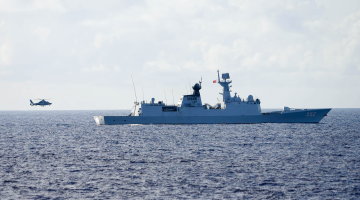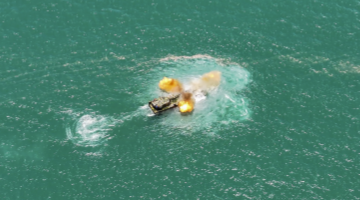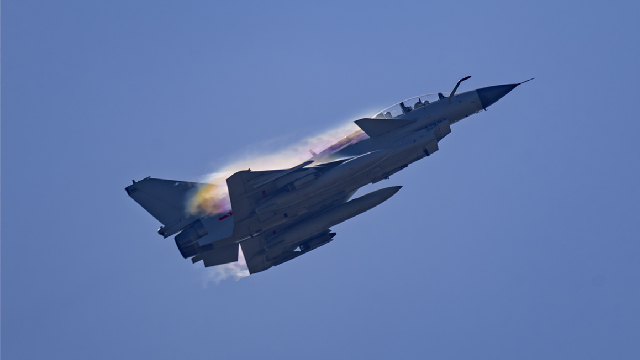By Liu Zan
Recently, the Marcos administration of the Philippines has continued to stir up troubles on the South China Sea issue, including continuous provocations at Huangyan Dao in China's Zhongsha Qundao. However, China has always maintained rational restraint and taken lawful control measures against the Philippines' infringements. The fact that the Marcos administration banks on external forces to make provocations on the South China Sea issue will only undermine regional peace and stability and gain no support from regional countries.
The Philippines attempts to occupy China's islands and reefs unreasonably
China has indisputable sovereignty over the islands and reefs in the South China Sea and their adjacent waters, including Huangyan Dao, and has sovereign rights and jurisdiction over the relevant waters. These sovereignty rights have been formed in long-term historical practice and have sufficient historical and legal basis.
The territorial scope of the Philippines is determined by a series of international treaties such as the 1930 Convention Between the United States of America and Great Britain Regarding the Boundary Between the Philippine Archipelago and the State of North Borneo. The islands in the South China Sea, including Huangyan Dao, have never been part of the Philippines. The Philippines had never raised any objection to the fact that Huangyan Dao belongs to China, nor had it made any territorial claim to the island before 1997.
Since this year, the Marcos administration has continued to make provocations on Huangyan Dao. The Senate of the Philippines recently passed the so-called Philippine Maritime Zones Bill in an attempt to solidify the illegal award of the South China Sea arbitration case in the form of domestic legislation, illegally including most of China's Huangyan Dao and Nansha Qundao and related waters into its maritime area, which seriously infringes on China's territorial sovereignty and maritime rights and interests in the South China Sea.
The Philippines spreads rumors to discredit China
The Marcos administration fabricated all kinds of lies to discredit China and the so-called environmental issues were one of the tactics used by the Marcos administration to slander China. The Philippines has tried every means to portray China as a "bully in the South China Sea" and itself as a "pitiful victim" to mislead international public opinion and put pressure on China.
Recently, the Philippine ships have often taken reporters with them to sensationalize their incursions into Chinese islands and reefs, and smeared the China Coast Guard's reasonable and lawful law enforcement measures as "violent expulsion." The British Broadcasting Corporation once reported that allowing reporters to film close encounters between Chinese and Philippine ships is part of a deliberate policy by the Philippine government to shine a spotlight on what it has called China's "brute force".
In fact, China has been committed to resolving the South China Sea issue through dialogue and negotiation. In 2002, China and ASEAN countries signed the Declaration on the Conduct of Parties in the South China Sea, and jointly committed to "resolving their territorial and jurisdictional disputes by peaceful means, through friendly consultations and negotiations by sovereign states directly concerned." In recent years, China and ASEAN countries have actively promoted consultations on the Code of Conduct (COC) in South China Sea. However, the Philippines reneged on its commitments in the Declaration and a series of bilateral documents with China, insisted on invading China's islands and reefs, and deliberately rammed ships of the China Coast Guard despite dissuasion and warnings. What it did was a modern version of "the Farmer and the Snake" story.
Maintaining stability in the South China Sea is in the interest of regional countries
The Asia-Pacific is the most dynamic region of the global economy. Maintaining stability and prosperity in this region is not only in the interest of regional countries, but also conducive to global economic development. The Marcos administration relied on forces outside the region to deliberately infringe, provoke, and smear China in the South China Sea. Some countries outside the region continued to encourage and support the Philippines' actions based on their own geopolitical interests, exacerbating tensions in the South China Sea, and seriously jeopardizing regional peace and stability.
Malaysian Prime Minister Anwar Ibrahim has repeatedly criticized the West for inciting "China phobia." Anwar also said that Malaysia did not have a problem with China and that Western countries should not hinder Malaysia from developing friendly relations with its important neighbor, China.
Anwar's statement reflects the common aspiration of most countries in the region to seek peace and development and not to choose sides. The economic development of ASEAN countries has benefited from the hard-won peaceful and stable environment. All countries should work hard to maintain such an environment. Dialogue and negotiation are the best ways to deal with the South China Sea issue.
Anna Malindog-Uy, vice president of the Manila-based think tank--Asian Century Philippines Strategic Studies Institute, pointed out that the interference of external forces is an important reason for the intensification of tensions in the South China Sea. It not only complicates the South China Sea issue, but also undermines the unity of relevant countries in dealing with the South China Sea issue. Non-regional forces should stop using the Philippines as a pawn and agent in strategic competition with China, and the Philippines should not allow itself to be exploited by external forces.









